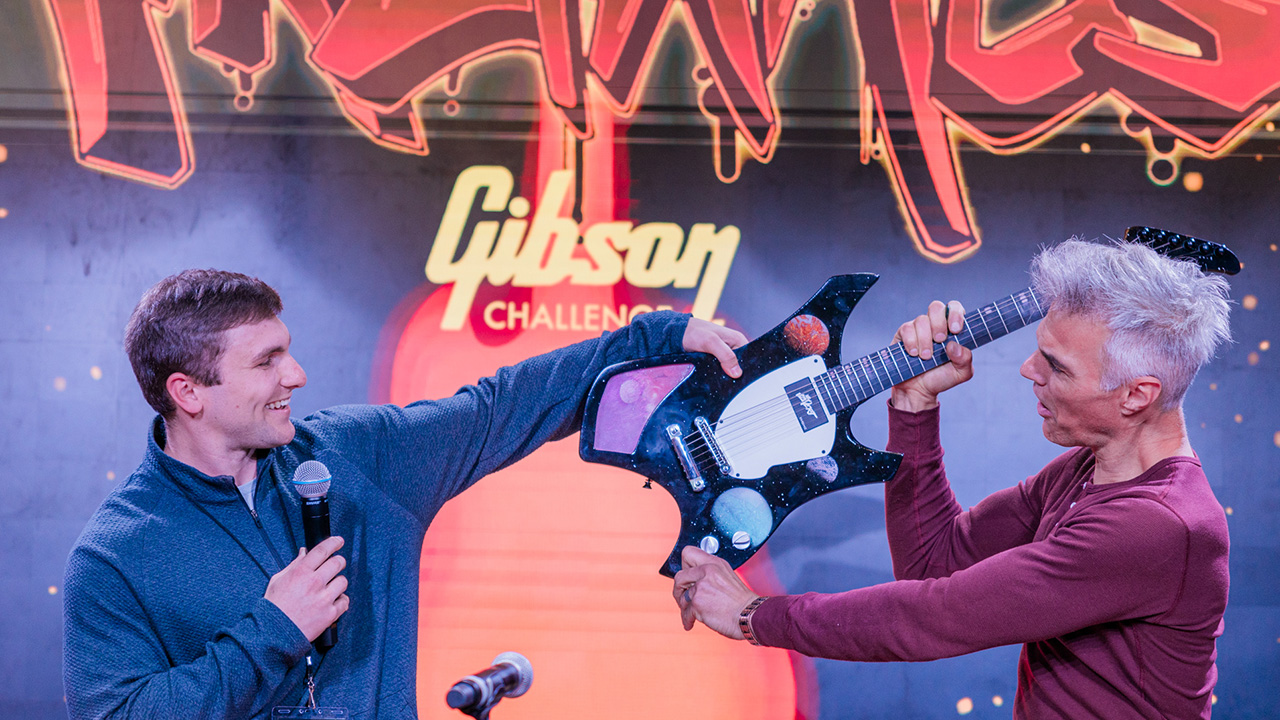content body

Industrial designers create products and services sold around the globe. They begin by discovering and analyzing the difficulties a user faces when interacting with a product and then design creative solutions to improve its usability.

Auburn’s industrial design program is taught by faculty members who have experience in a wide range of industries and who hold dozens of patents for inventions. They pass their knowledge on to students in a studio setting that replicates the workplace of a real-world design team.

The program places an emphasis on prototyping, which is the hands-on creation of physical iterations of products in development. Once a prototype is created, it can be tested by potential users to help inform strategic design decisions. Auburn students have access to all the tools they need to bring their designs to life, including laser cutters, 3D printers, CNC routers, plotters and metal and woodworking tools.

Another area of emphasis is human-centered design. This rapidly growing field involves the creation of efficient and intuitive processes and interactions between humans and products, systems and services, as well as development of print, digital and physical interfaces that direct those processes.
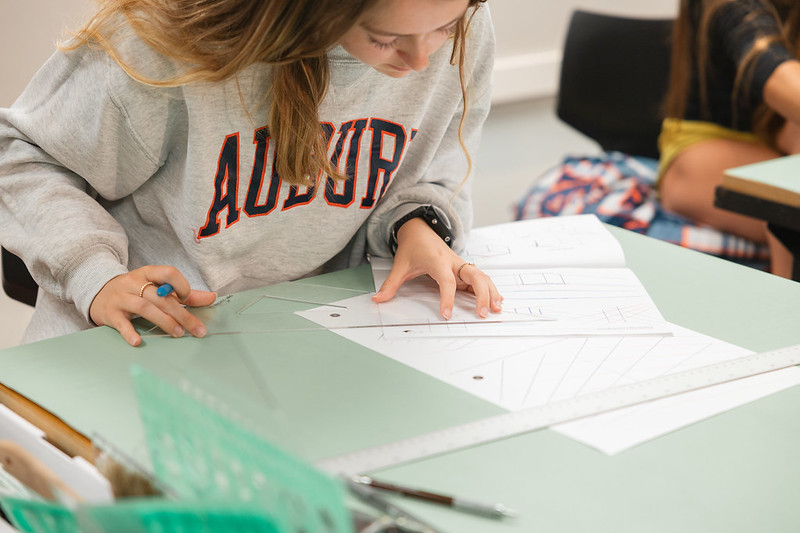
At Auburn, the journey to becoming an industrial designer begins in what everyone refers to as “Summer Op,” an intense semester-long studio where pre-professional students learn the basics of drawing and design. Their coursework includes technical drawing, perspective drawing and rendering, and at the end of the summer, 45 students are admitted into the program.

Once they’re admitted into the professional program, students take a different design studio course each semester. Faculty members structure studios and assignments based on their own interests, experiences and expertise, and students work together to design realistic and attainable solutions.
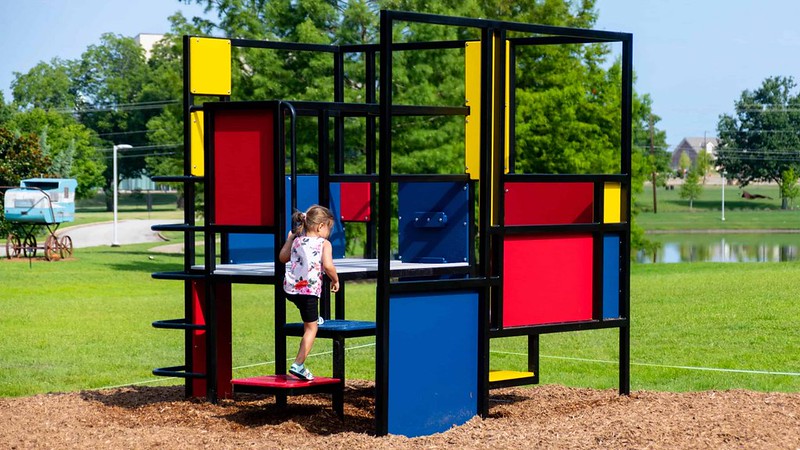
<p>Sponsored studios provide students the opportunity to create designs for real clients. The sponsor provides background information and technical expertise, and the most successful of the students’ concepts and designs have the opportunity to be put into production. One of the most popular studios is sponsored by industry partner PlayCore, a company that designs playgrounds and other recreational spaces. In 2021, <a href="https://cadc.auburn.edu/industrial-design-creates-play-structure-at-auburns-art-museum/">one group of students had their design built</a> at Auburn’s Jule Collins Smith Museum of Fine Art.</p>
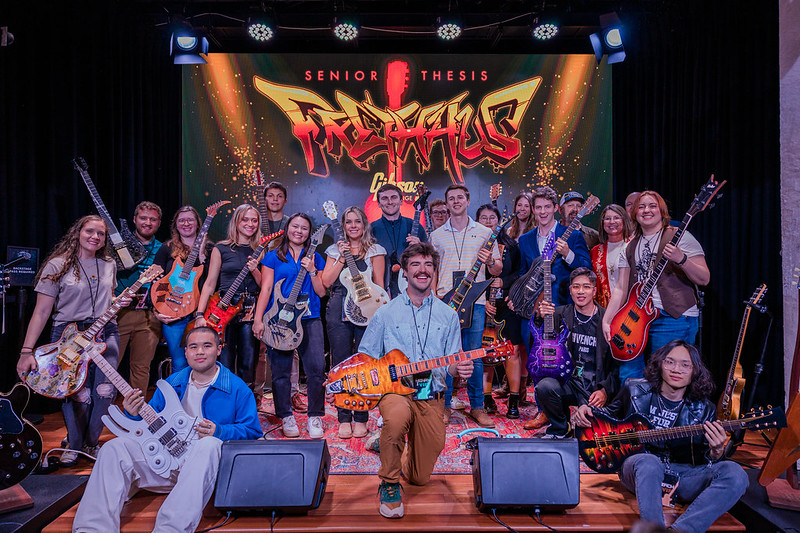
<p>One of the most exciting studios is Frethaus, a senior-level guitar design that culminates in an exhibition of student work. The <a href="https://cadc.auburn.edu/gibson-garage-hosts-sigds-frethaus-2023-in-nashville/">FretHaus 2023</a> exhibition was hosted by Gibson Garage, the Gibson Brand Inc.’s flagship store in Nashville, Tennessee. The retail outlet and guitar mecca hosted a night of guitar displays and a musical performance by Professor of Practice Keith Medley and featured a welcome from Auburn University President Christopher B. Roberts. This innovative course has led to a fruitful partnership with industry professional Medley, who is Master Luthier and Product Development Manager for Gibson Guitars.</p>
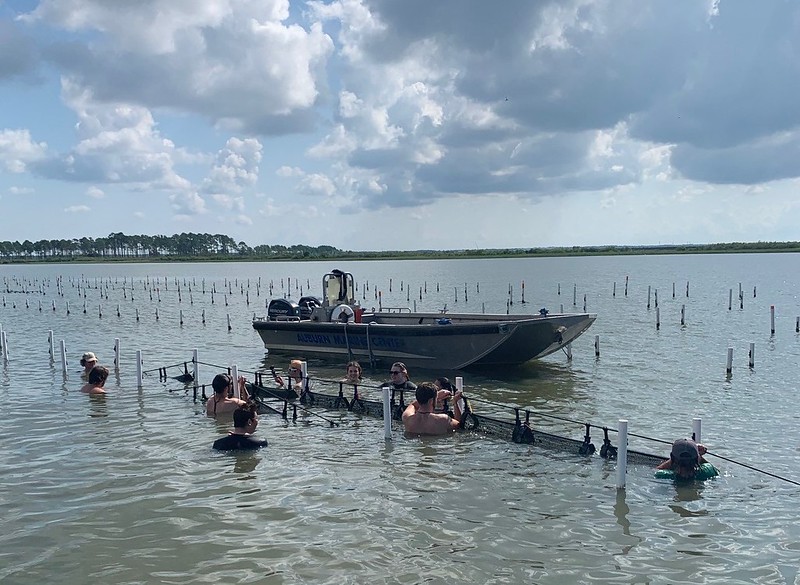
<p>Instead of designing for individuals or industry, some studios create solutions for other departments and units on campus. <a href="https://agriculture.auburn.edu/research/faas/auburn-shellfish-lab/">The Auburn University Shellfish Lab</a> is one partner whose staff is eager to share their knowledge and discuss the challenges of oyster farming. To better understand the contextual challenges, students actually experienced the harvesting firsthand in Mobile Bay before brainstorming ideas that included oyster harvesting boats, cage-cleaning devices and more.</p>

<p>After graduation, Auburn industrial design alumni go on to design products and services in various industries around the world. When he first graduated in 2013, <a href="https://cadc.auburn.edu/alumni-spotlight-nathan-malinick-13/">Nathan Malinick</a> designed jet airplanes at Embraer. He now oversees concept generation, product development and manufacturing design of hypercars and high-performance vehicles at Hennessey Performance.</p>

<p>Tom Dempsey leads <a href="https://www.sylvansport.com/">SylvanSport,</a> an outdoor recreation company that designs and manufactures travel trailers, pop-up campers and camping gear. After graduating from Auburn in 1989, Dempsey went to work designing products for several different companies in the outdoor industry. In 2004, he founded SylvanSport, and today it’s one of the fastest-growing outdoor companies in the country. SylvanSport features innovative, versatile products that are unlike any others on the market.</p>
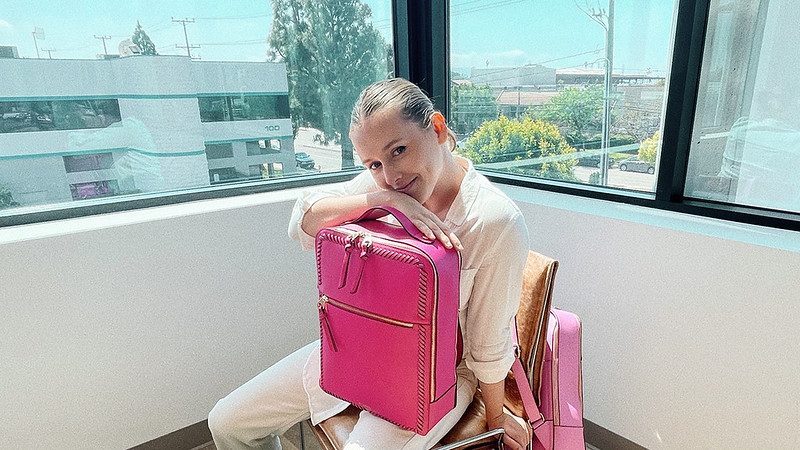
<p>While industrial design alumni go on to work in very different fields, many say the design education they received at Auburn serves as the foundation of all they do. Shelby Taylor, a 2016 graduate who is art director at the luggage manufacturer CALPAK, says her industrial design foundation from Auburn stays with her as she leads her company’s brand presence through product design, graphic design, web design, messaging and content creation.</p> <p>“My ability to communicate critical design solutions and maintain my love for what I do is a direct result of my education at Auburn,” she said. “I used to think the industrial design program was difficult for the sake of being difficult.</p> <p>With all the late nights, rough design critiques and computer crashes, I assumed I was learning about humility, but in fact, Auburn was teaching me about resilience.”</p>
Want to know more about Auburn's industrial design program?
Learn more


